June 21, 2025 | 01:51 GMT +7
June 21, 2025 | 01:51 GMT +7
Hotline: 0913.378.918
June 21, 2025 | 01:51 GMT +7
Hotline: 0913.378.918
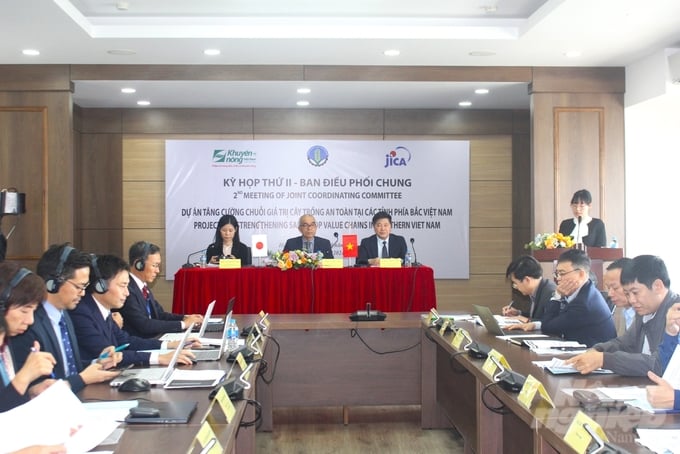
The project on Strengthening Safe Crop Value Chains in Northern Vietnam has achieved some measurable results in all five proposed objectives after two years of implementation. Photo: Trung Quan.
The National Agricultural Extension Center (NAEC), in collaboration with the International Cooperation Department (MARD) and JICA, convened the second meeting of the Project on Strengthening Safe Crop Value Chains in Northern Vietnam Joint Coordinating Committee (JCC) on March 5.
The project, which is executed from 2022 to 2026, aims to enhance the development of secure value chains for crops (vegetables and fruits) in the designated project areas, as stated by JCC. Specific goals of the project include a 20% increase in profit per unit of safe crops produced by targeted agricultural cooperatives compared to the time of the basic survey, and an over 30% expansion of selling channels by agricultural cooperatives relative to the time of the basic survey.
The project has achieved some measurable results in all five proposed objectives after two years of implementation, employing a value chain-building strategy and bolstering the capabilities of agricultural extension personnel, cooperatives, and stakeholders.
In light of this, the JICA expert group suggests that 21 agricultural cooperatives (ACs) among those certified as meeting food safety requirements (with or without VietGAP certification) and presently operating solely in local markets (community markets), with the aim of enhancing their capacity and value chain. Additionally, these ACs aim to develop the capability to get into modern markets.
Additionally, the Project's strategy for assisting agricultural cooperatives will be predicated on the schedule-based reduction of financial support. Particularly, in 2023, the entire cost of the project will be financed; in 2024, 50%; and in 2025, technical support only; there will be no financial assistance."
With regard to capacity building for extension officers, the Project will specifically concentrate on endeavors such as conducting training for extension officers and, if required, revising course outlines and teaching materials in accordance with the outcomes of the training.
Extension officers will receive assistance from the Provincial Project Management Unit (PPMU) in conducting training for agricultural cooperatives, as well as in devising plans and implementing initiatives to promote the expansion of safe crop cultivation and monitoring activities.
The Project intends to execute the following activities for the pilot management of agricultural cooperatives: preparation (including the organization of centralized sales systems and the nomination of management committee members); market surveys; production planning in accordance with market demand; on-site guidance for the agricultural cooperatives that are the focus of the guidance; review and evaluation.
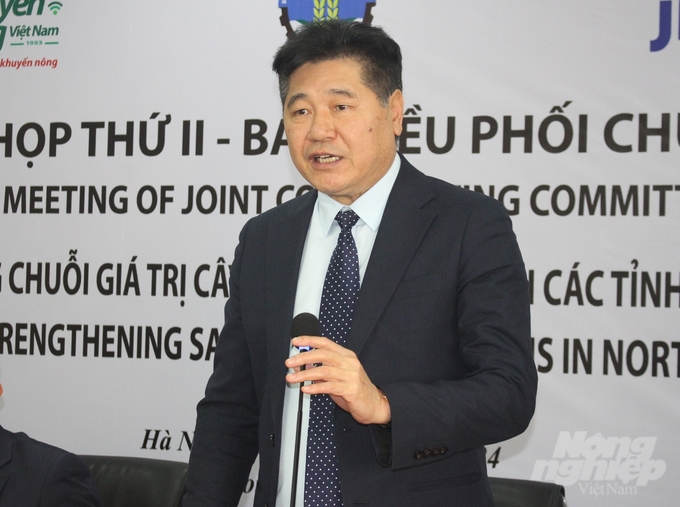
Mr. Le Quoc Thanh, Head of The National Agricultural Extension Center hoping that activities will continue, even grow, and deliver tangible results to the communities even after the project concludes.
In relation to collaborative endeavors among pertinent stakeholders in the value chain, the CPMU/PPMU shall ascertain obstacles and insights gained in order to improve the value chain for safe crops; disseminate said insights and challenges to the relevant stakeholders; formulate strategies and execute initiatives to tackle the obstacles and challenges; and establish plans and execute activities to accomplish the aforementioned objectives.
In order to bolster its enforcement capabilities regarding food safety, CPMU/PPMU shall execute an action plan encompassing endeavors to fortify food safety throughout the value chain. The implementation of the action plan shall be closely monitored, and it shall be routinely modified.
Effectiveness expansion upon project completion
During the meeting, Mr. To Viet Chau, Deputy Head of the International Cooperation Department, proposed that in order to ensure the successful execution of the Project in 2024 and subsequent years, the JCC should strengthen information exchanges and facilitate the sharing of information, particularly that which is strategic in nature and serves to collectively direct and manage the project's activities.
In close coordination with JICA, PPMU, and local authorities, the CPMU will review, assess, and summarize the implemented contents to ensure that the project is executed in accordance with its specifications and achieves its objectives. To enforce food safety and support ACs in implementing the model in accordance with the proper technical procedures, the PPMU must work in close collaboration with the CPMU and other pertinent local entities.
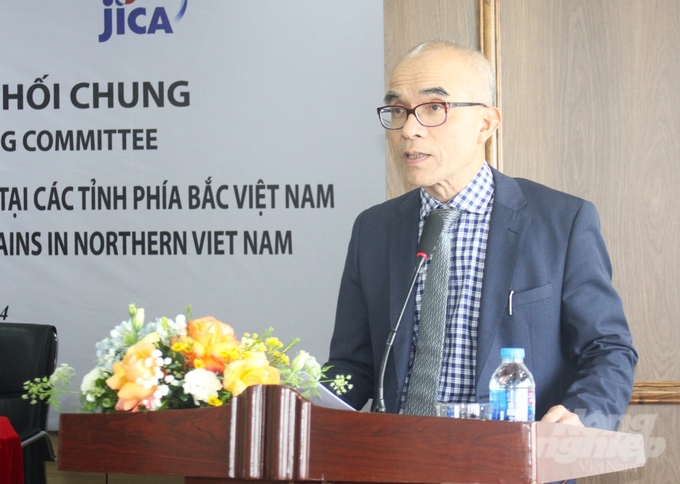
According to Mr. To Viet Chau, Deputy Head of ICD, in close coordination with JICA, PPMU, and local authorities, the CPMU will review, assess, and summarize the implemented contents to ensure that the project is executed following its specifications and achieves its objectives. Photo: Trung Quan.
According to Mr. Le Quoc Thanh, the Director of the National Agricultural Extension Center, the Center has historically collaborated closely with JICA experts, PPMU, and local authorities to execute project activities in accordance with the established plan and schedule while assuming the role of project implementation leader.
Expanding upon this ethos, the project should prioritize the implementation of training programs aimed at bolstering the capabilities of extension officers, agricultural cooperatives, and other involved parties in 2024 and subsequent years. Furthermore, it ought to augment the mobilization of funds from domestic target initiatives in order to execute the project.
Furthermore, he underscored the rationality behind the strategy of reducing the project support budget incrementally. To maintain the tempo of activities, particularly in enhancing the capacity of local stakeholders, project participants must investigate initial support solutions. The hope is that activities will continue, even grow, and deliver tangible results to the communities even after the project concludes.
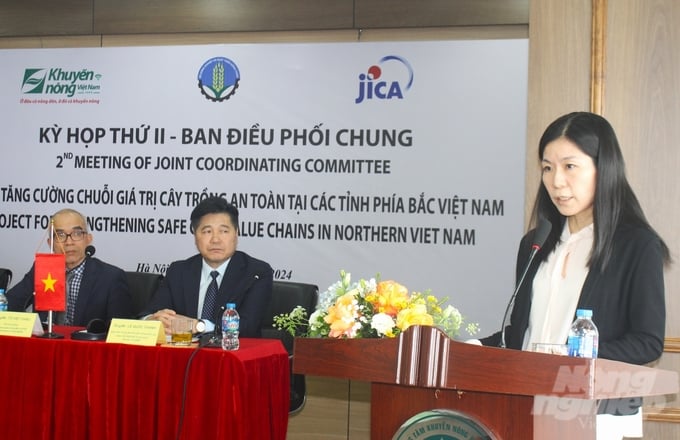
According to Deputy Chief Representative of JICA Vietnam Ms. Yoko Takebayashi, the Project demonstrates the Ministry of Agriculture and Rural Development and JICA's enduring partnership. Photo: Trung Quan.
According to Deputy Chief Representative of JICA Vietnam Ms. Yoko Takebayashi, the Project demonstrates the Ministry of Agriculture and Rural Development and JICA's enduring partnership characterized by mutual commitment to advancing sustainable agricultural development and bolstering food security. As a result, CPMU and PPMU continue to collaborate in order to accomplish the project's goals by incorporating routine agricultural promotion programs into project activities.
Translated by Linh Linh
![Turning wind and rain into action: [10] Advancing accessible climate services for farmers](https://t.ex-cdn.com/nongnghiepmoitruong.vn/608w/files/linhnhp/2025/06/20/1911-z6704423696987_15fd32ffc26d590d204d520c9dac6786-nongnghiep-161854.jpg)
(VAN) Not only does it help farmers 'avoid droughts and rains,' the development of agricultural climate services also enhances their ability to proactively adapt to a rapidly changing climate.
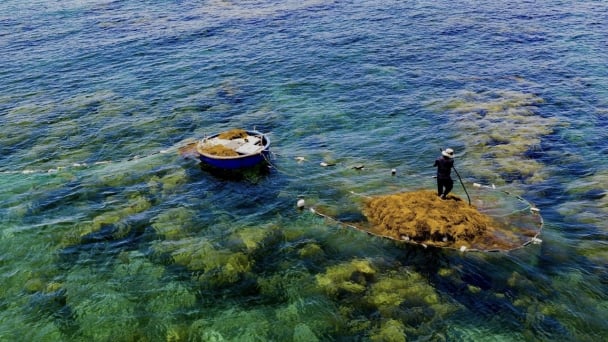
(VAN) With international assistance, the harvesting of sargassum seaweed in Quang Ngai has become increasingly regulated, thereby safeguarding marine life and ensuring the stability of coastal communities' livelihoods.
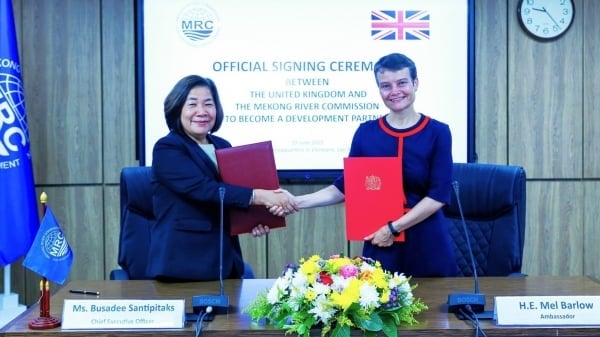
(VAN) On June 19, the United Kingdom officially became a Development Partner of the Mekong River Commission.

(VAN) Biodiversity is being threatened by traditional remedies made from wildlife. Traditional medicine and humans must change to live in harmony with nature.

(VAN) Agrifood investment and finance solutions for people and the planet.

(VAN) Microplastic contamination has become pervasive in seafood, posing unprecedented challenges for food safety and marine ecosystems.
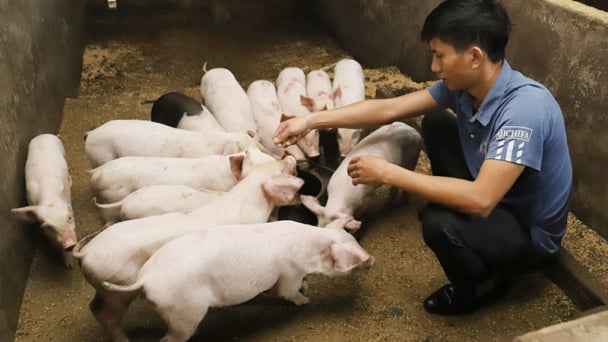
(VAN) Proactively using vaccines, combined with transport control and enhanced surveillance, is the only viable path toward biosecure and sustainable livestock production in Vietnam.